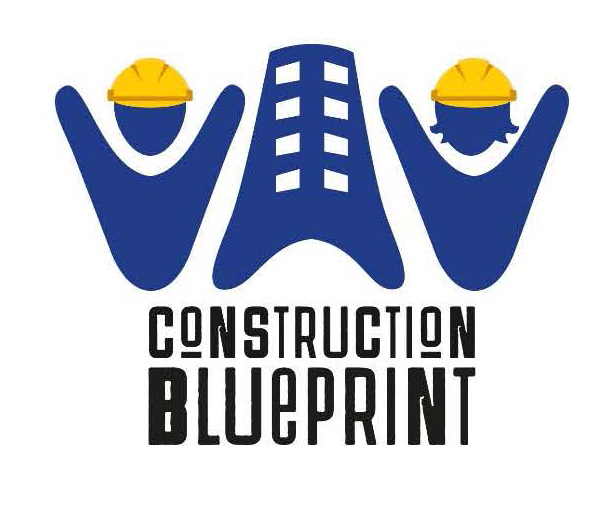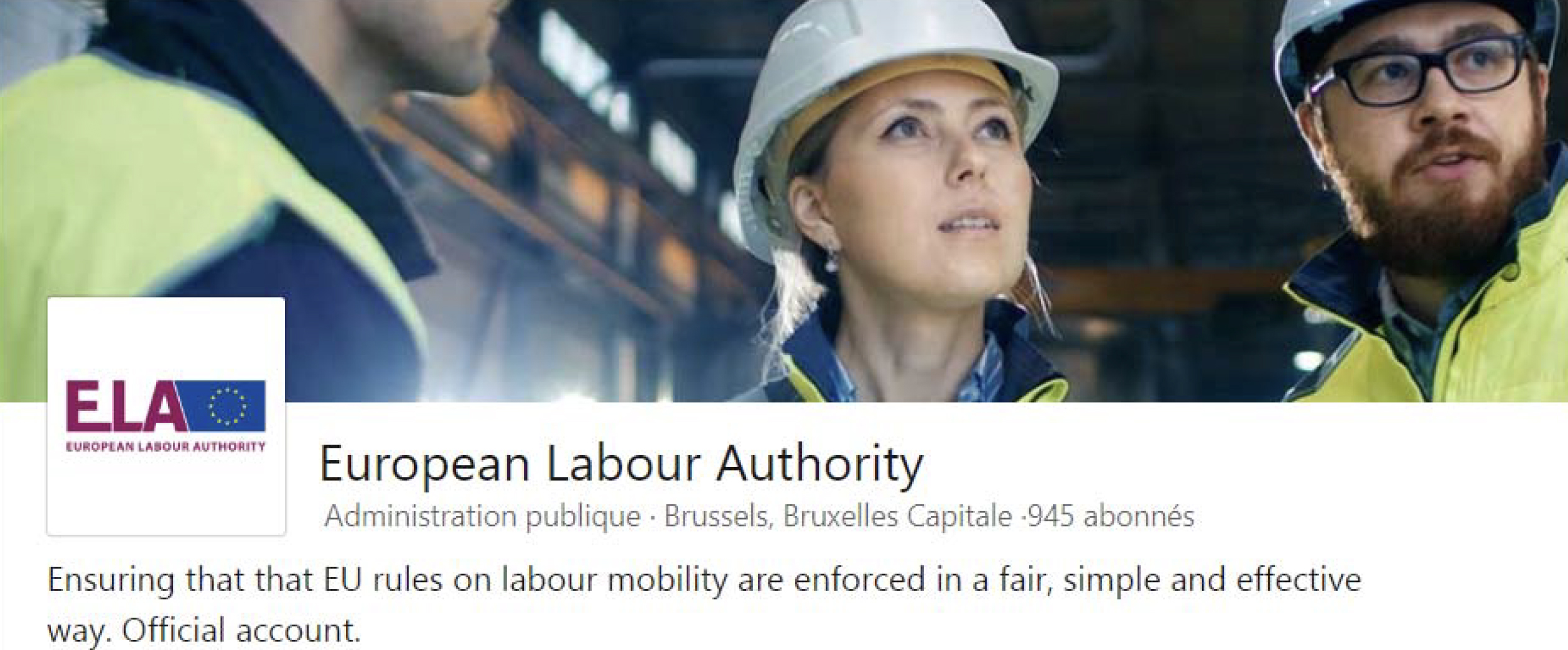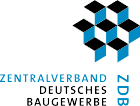In 2018 a project entitled "Skills Blueprint for the Construction Industry" was officially launched. It gathers a consortium of 24 partners, including FIEC, from 12 different countries and is coordinated by the "Fundacion Laboral de la Construccion" from Spain.
The project is co-financed by the Erasmus+ programme and its main aim is to develop a long term alliance between the concerned stakeholders (employers, workers, training centres, public authorities) for a better anticipation of the skills needed in the construction industry and to ensure a corresponding adaptation of the training schemes.
It focuses on 3 key areas: digitalisation, energy efficiency and circular economy.
Why FIEC is dealing with this topic
In most of the Member States construction companies are facing difficulties in finding the right workers with the right skills.
This can be explained by the rapid technological changes, including the digitalisation of construction processes through BIM (Building Information Modelling) and other digital tools or methods (automation, drones, Internet of Things, etc.), by policy choices, such as "greener" economies and initiatives on energy efficiency in bLildings, as well as by demographic changes, notably the ageing of the workforce.
The aim of this initiative is to develop and implement a new strategic and coordinated approach ("Blueprint") to sectoral cooperation on skills by enhancing the responsiveness of vocational education and training (VET) systems, at all levels, to the construction labour market needs. In other words, it aims at identifying existing and emerging skills needed in order to translate them into vocational curricula responding to those needs.
For further information: www.constructionblueprint.eu

Actions and key dates
31/01/2019 – Kick-off meeting, Madrid
24-25/10/2019 – 2nd meeting, Roma
13/03/2020 – 3rd (virtual) meeting
December 2022 – End of project
In March 2020, the EU sectoral social partners for the construction industry FIEC, representing the employers and EFBWW (European Federation of Building and Wood Workers), representing the workers started a project, co-financed by the European Commission, aimed at organising 6 dedicated meetings of the construction social dialogue over a two year period.
The main objective of the project is to discuss the social and economic challenges which are impacting the construction labour market and their future development.
The project also aims at promoting the European Social Dialogue at national level, while at the same time encouraging national social partners, especially from the Central and Eastern European Countries (CEECs), to be more involved in the European Social Dialogue of the construction industry.
Why FIEC is dealing with this topic
Social Dialogue in the construction industry is a top priority for FIEC and can have a significant impact at national level, in particular in CEECs.
The 6 meetings will cover issues that have been identified as priorities in many Member States, such as:
- Initiatives for attracting and retaining young people in the construction industry;
- Addressing the problem of skills gaps/mismatches and corresponding adaptations of the training schemes due to the "greening" and the digitalisation of the construction industry;
- Exchange of best practice, improvement and development of Occupational Safety
and Health (OSH) Risk Assessment tools and methodologies in construction;
- How digitalisation can improve OSH in the construction industry;
- Assessment of the transposition, implementation, application and enforcement of the "Enforcement" (2014/067/EC) and of the new "Posting of Workers" (2018/955/EC) Directives;
- Discussion on the impact and possible solutions regarding the increased number of third country companies and workers in the EU construction industry.
Actions and key dates
March 2020 – Start of project
March 2022 – End of project
Regulation (EU) 2019/1149 of 20 June 2019 establishes the European Labour Authority (ELA).
The main aims of the ELA are: improving the access to information by individuals and employers about their rights and obligations in the areas of labour mobility and social security coordination; strengthening operational cooperation between authorities in the cross-border enforcement of relevant Union law, including facilitating joint inspections; providing mediation and facilitating solutions in cases of disputes between national authorities.
https://ela.europa.eu/
As a first step, two working groups have been set up: one on (improving) information, and another one on joint inspections.
Why FIEC is dealing with this topic
Mobility within the Internal Market is an issue of crucial importance for construction companies. It is also a source of fraudulent practices amongst others because of the difficulties in the controls and the lack of coordination between public authorities, which affects genuine companies and the possibility for them to act on a level playing field.
Several existing bodies that are dealing with mobility-related issues (Committee of Experts on Posting, EU Platform against Undeclared Work...) in which FIEC is currently sitting will be incorporated in the ELA. It is therefore of crucial importance that FIEC has secured its presence in this new Authority (i.e. in the Stakeholders' Group).

Actions and key dates
16/10/2019 – Official launch of ELA
22/11/2019 – FIEC participates in 1st meeting of the Stakeholders' Group
05/05/2020 – FIEC participates in 2nd meeting of the Stakeholders' Group
The European Commission is planning to revise the Machinery Directive (2006/42/EC).
This Directive concerns machinery and certain parts of machinery. Its main intent is to ensure a common safety level in machinery placed on the market or put in service in all EU Member States and to ensure freedom of movement within the EU.
The planned revision of the Directive intends to: align the Directive with EU harmonised legislation on product health and safety; and tackle the challenges that may arise from technical progress in digitalisation.
Why FIEC is dealing with this topic
The well-functioning of the Internal Market for the free movement of products, as well as health and safety aspects on construction work sites are two major issues dealt with by FIEC.
The forthcoming modifications of the legislation might have important impact in terms of responsibility of contractors (versus manufacturers) in case of necessary adaptation of the machines or accidents, for instance.
In general, better cooperation from the manufacturers would be needed regarding the user's manuals, advanced information on the machines, ownership on/ treatment of the generated data, etc.
In parallel, FIEC is already participating in the Machinery Expert Group of the European Commission and provides input and feedback.
Actions and key dates
30/08/2019 – FIEC contribution to the European Commission public consultation on the revision of the Directive 2006/42/EC on machinery
02-03/12/2019 – FIEC participation in European Commission Machinery Expert Group
29/01/2020 – 1st meeting of the FIEC Working Group "Machinery" (jointly with TEC-1 "Directive, standards and quality assurance" and SOC-2 "Health & Safety")
19-20/02/2020 – FIEC participation in European Commission Machinery Expert Group
March 2020 – FIEC contribution in drafting of Opinion of the European Economic and Social Committee (EESC)
02/04/2020 – 2nd meeting of the FIEC Working Group "Machinery"
"Posting" is the provision of services, for a limited period, in a country other than the one where the company usually operates or where a worker usually works.
The EU Committee of Experts on Posting of Workers was set up by the European Commission in 2009 (Decision 2009/17/EC), with the aim of providing support and assistance to the Member States in the practical application of the "Posting of Workers" Directive (96/71/EC).
The Committee is composed of experts representing the competent national authorities in each Member State and the social partners at European level representing sectors with a higher incidence of recourse to posted workers, such as construction, temporary agency work, catering, agriculture and transport, participate in the Committee as observers.
Why FIEC is dealing with this topic
Approximately half of the postings within the Internal Market are in construction activities.
FIEC therefore provides to the Committee of Experts its expertise and knowledge by : identifying and exchanging experience and good practice; promoting the exchange of relevant information; examining any questions and difficulties which might arise in the practical application of the posting legislation, as well as its enforcement in practice; closely following the progress achieved in improving both access to information and administrative cooperation.
In the future, it is foreseen that this Committee will be integrated into the activities of the ELA (European Labour Authority).
Actions and key dates
September 2019 – Publication of EC Guidance on Posting of Workers
03/10/2019 – Meeting of the Committee of Experts
20/11/2019 – Meeting of the Committee of Experts (subgroup)
The "Posting" Directive defines the rules that apply when a company provides services, for a limited period, in a country other than the one where it usually operates. As the provision of services is temporary, some of the rules that apply are the ones of the "host" country (minimum wage, working time, health and safety...), whilst others (for example "Social security") remain the ones of the "home" country.
Latest revision to date, Directive (EU) 2018/957 of 28 June 2018 amended the original Directive from 1996 on the "posting of workers in the framework of the provision of services", with the aim to address the problem of unfair practices and to promote the principle that the same work at the same place should be remunerated in the same manner.
Member States must apply the new rules by 30 July 2020.
Why FIEC is dealing with this topic
Approximately half of the postings within the Internal Market are in construction activities and therefore these new rules can have a significant impact for construction companies.
FIEC is going to follow the implementation phase and intervene in case of problems with the newly introduced provisions such as, for example: the reference to "remuneration" instead of "minimum wage"; a limitation in time (max 12 months, plus 6 possible additional months) beyond which the terms and conditions of employment that are mandatorily applicable to workers will be the ones of the Member State where the work is carried out; a clarification of the rules applicable to the reimbursement by the employer of the expenditures incurred on account of the posting, such as on travel, board and lodging.
Actions and key dates
28/6/2018 – Adoption of the new "Posting" Directive 2018/957/EC
30/7/2020 – Deadline for implementation by the Member States
In 2016 the European Commission started a revision of the "Carcinogens" Directive (2004/37/EC) which led (at the end of the legislative procedure) to the inclusion within the scope of this Directive of various substances, including "Respirable Crystalline Silica" (RCS).
By doing so the EU legislator recognises RCS as being a carcinogenic substance and introduced a binding OEL (occupational exposure level) of 0,1 mig/m3, which now becomes mandatory in all the Member States.
Why FIEC is dealing with this topic
Crystalline silica is an essential material, with the substance having an abundance of uses in industry and being a vital component in many things used in our everyday lives. It is impossible to imagine houses without bricks, mortar or windows, cars without engines or windscreens, or life without everyday items made of glass or pottery. It is thefore present in most of construction-related activities.
For many years, it has been known that the inhalation of fine dust containing a proportion of crystalline silica can cause lung damage (silicosis).
The EU sectoral social partners for the construction industry FIEC, representing the employers, and EFBVWV (European Federation of Building and Wood Workers), representing the workers, have submitted a joint project aiming at identifying best practice examples and elaborating guidelines for helping companies in complying with the requirements of the modified "Carcinogens" Directive.
Actions and key dates
12/12/2017 – Adoption of the amended "Carcinogens" Directive (2017/2398/EC)
2018-2019 – Several meetings of the joint FIEC-EFBM working group
June 2019 – Submission of the FIEC-EFBWW social dialogue project
December 2019 – European Commission gives green light to the project
March 2020 – Official start of the project
16/03/2020 – 1st meeting of the Steering Group => POSTPONED
March 2022 – End of the project
The project SKILLCO (www.skillco.eu), co-financed by the ERASMUS+ programme, is coordinated by the Chamber of Construction and Building Materials Industry of Slovenia (CCIS CCBMIS) and gathers social partners organisations and training providers from Germany, Hungary and Slovenia, as well as FIEC.
The main goals of the project are to define and identify existing and anticipated skill needs, to elaborate and define learning units that could be integrated in formal VET (Vocational Education and Training) programmes or used as training courses.
Amongst the project's key outcomes there will be the development of two VET module, one for pupils and a second one with practical trainings for workers, and their final implementation in the training courses. Both modules will be supported by a mobile app training tool developed in the framework of the project.
Why FIEC is dealing with this topic
The construction sector is facing significant challenges. which are due to policy developments, with an increasing focus at all levels on "green" initiatives, as well as to technological ones, such as, for example, the digitalisation of the sector.
These trends have an impact on the profiles (skills, competences,...) of the workers needed, as well as on the content of the training schemes.
In several Member States construction companies are confronted with difficulties in finding the right workers with the right skills.
FIEC is therefore involved in various initiatives aiming at addressing the problem of skills gaps and skills mismatches.

Actions and key dates
12/2016 – Kick-off meeting
12/2019 – Final conference
01/2020 – End of project
In December 2016 the European Commission presented a proposal for a revision of the existing Regulations on Social Security coordination (883/2004 and 987/2009).
Achieving a modernised system of social security coordination that responds to the social and economic reality in the Member States is one of the central drivers for this initiative.
This initiative is complementary to the revision of the "Posting" Directive which led to the adoption of the new "Posting" Directive (Directive 2018/957 of 28 June 21018).
Why FIEC is dealing with this topic
Mobility within the Internal Market is an issue of crucial importance for construction companies.
The proposal of the Commission focuses on different areas of coordination where improvements are required (economically inactive citizens' access to social benefits, long¬term care benefits, unemployment benefits and family benefits), but FIEC mainly addressed those provisions that have a link with the issue of posting such as the need : to strengthen the cooperation and the exchange of information between national administrations; to reinforce the reliability of the Al forms; to strengthen the provisions regarding the pursuit of activities in two or more Member States; to align some of the proposed changes with those concerning "Posting", because companies, workers, labour inspectorates and public authorities need a clear and coherent legal framework, in order to be able to comply with it and to enforce it.
Actions and key dates
13/12/2016 – Initial proposal of the European Commission
9/1/2018 – FIEC position paper
Autumn 2019 – resuming of political negotiations between Council and (new) Parliament (trilogue) => very slow progresses due to blocking issues (i.e. derogation clause to prior notification)
In 2018 the EU sectoral social partners for the construction industry FIEC, representing the employers, and EFBWW (European Federation of Building and Wood Workers), representing the workers, in cooperation with the AEIP (the European Association of Paritarian Institutions) started a project, co-financed by the European Commission, called "TANSIRC", which stands for: Towards A New Start of Industrial Relations in Construction in Central and Eastern European Countries.
Why FIEC is dealing with this topic
The first aim of this project is to conduct an overall "mapping" to gather a complete and practical up-to-date picture of the current situation of the national systems of industrial relations in Central and Eastern European countries.
Based on the priorities identified during this mapping exercise, the project develops 4 thematic seminars aiming at assisting the national employers' federations and trade unions of the target countries to build, foster, strengthen and promote industrial relations in their respective countries, namely on:
- implementing social paritarian funds in the construction industry (Bucharest, September 2019);
- promoting good practices in public procurement (i.e. awarding the contract to the Most Economically Advantageous Tender) (Prague, October 2019);
- organising communication campaigns on health and safety (Warsaw, January 2020);
- improving external and internal communication and attracting new members (Riga, March 2020).
The main idea behind this initiative is that reinforcing the structures of our member organisations at the national level will help reinforce the representativeness of FIEC at the EU level.
Actions and key dates
16/3/2018 – Kick-off meeting
December 2019 – End of project (extended to June 2020)
In 2019 the EU sectoral social partners for the construction industry FIEC, representing the employers, and EFBWW (European Federation of Building and Wood Workers), representing the workers, started a project, co-financed by the European Commission, titled "TUWIC", which stands for: Tackling Undeclared Work in the Construction Industry.
It covers 7 countries (Austria, Belgium, Bulgaria, France, Italy, Romania and Spain) and one of the interesting aspects is that for each of these countries there is a commitment between the concerned national authority(ies), the employers' and the workers' organisations to cooperate and undertake concrete actions.
Why FIEC is dealing with this topic
At EU level, undeclared work is defined as "any paid activities that are lawful as regards their nature but not declared to public authorities, taking account differences in the regulatory systems of the Member States".
In coordination with the activities of the EU Platform for tackling undeclared work, the project aims to, in the first step, develop a European campaign on prevention/awareness of undeclared work in the construction industry, including providing the appropriate promotional material to all EU national members in their own language.
In parallel, the stakehodlers in the participating countries will develop specific joint initiatives to tackle the problem in the construction industry at a national level.
Actions and key dates
8/3/2019 – Kick-off meeting
Autumn 2019 / Winter 2019-2020 – National initiatives
02/03/2020 – Start of EU cross-sectoral campaign (see also ELI Platform against Undeclared Work)
19-20/03/2020 – FIEC-EFBWW conference and launch of sectoral campaign (Zagreb) => POSTPONED
June 2020 – End of the project











































In December 2016 the European Commission presented a proposal for a revision of the existing Regulations on Social Security coordination (883/2004 and 987/2009).
Achieving a modernised system of social security coordination that responds to the social and economic reality in the Member States is one of the central drivers for this initiative.
This initiative is complementary to the revision of the "Posting" Directive which led to the adoption of the new "Posting" Directive (Directive 2018/957 of 28 June 21018).
Why FIEC is dealing with this topic
Mobility within the Internal Market is an issue of crucial importance for construction companies.
The proposal of the Commission focuses on different areas of coordination where improvements are required (economically inactive citizens' access to social benefits, long¬term care benefits, unemployment benefits and family benefits), but FIEC mainly addressed those provisions that have a link with the issue of posting such as the need : to strengthen the cooperation and the exchange of information between national administrations; to reinforce the reliability of the Al forms; to strengthen the provisions regarding the pursuit of activities in two or more Member States; to align some of the proposed changes with those concerning "Posting", because companies, workers, labour inspectorates and public authorities need a clear and coherent legal framework, in order to be able to comply with it and to enforce it.
13/12/2016 – Initial proposal of the European Commission
9/1/2018 – FIEC position paper
Autumn 2019 – resuming of political negotiations between Council and (new) Parliament (trilogue) => very slow progresses due to blocking issues (i.e. derogation clause to prior notification)